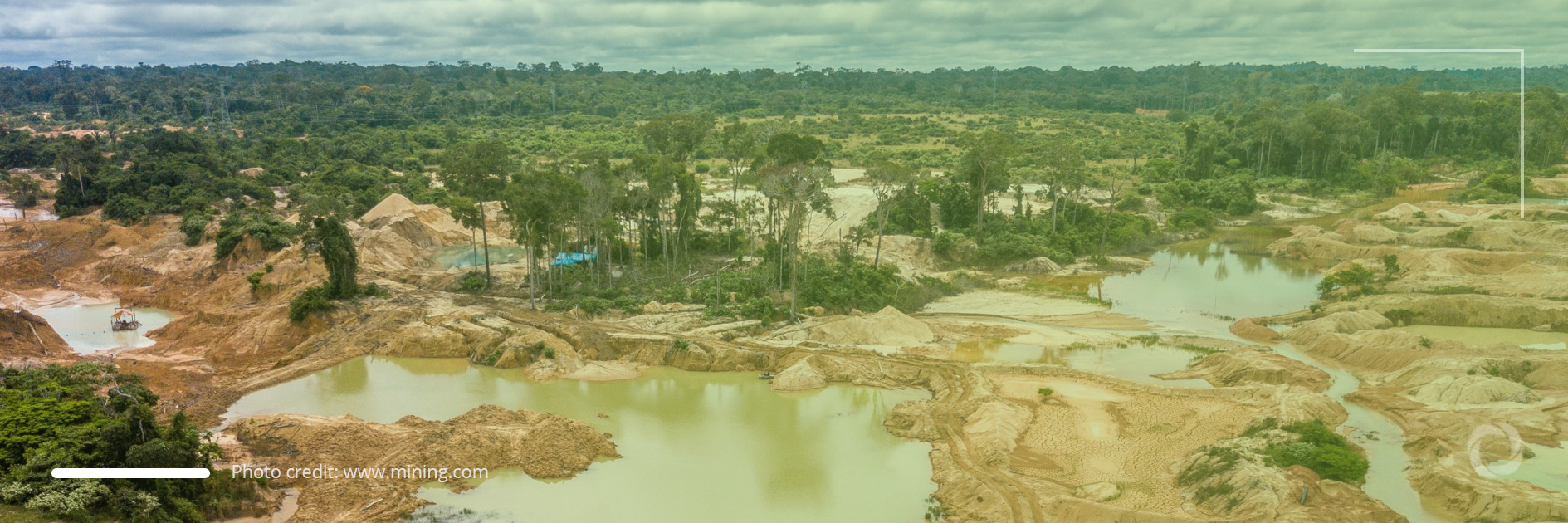Levels of deforestation in Colombia have significantly increased in recent years due to logging by the legal mining industry and those numbers may further increase.
A recent study conducted by Colombian scientists from Del Rosario University in Bogota indicated that only 1% or 100 companies of all the 8,600 legal mining concessions in Colombia have been responsible for 60% of the deforestation generated by this industry within the last 20 years.
The study also showed that the pace of deforestation as a result of legal mining activities began to significantly increase from 2016 which was when the Colombian government and FARC guerillas signed a peace agreement. 2017 witnessed a record high in terms of legal mining-driven deforestation, reaching a loss of 22,000 hectares. Furthermore, the researchers discovered that only three companies were responsible for the vast majority of logged forest although their management have argued that the companies also made an effort to reforest that which had been lost but scientists noted that the impact of this effort was limited.
“The impact associated with primary forests in terms of biodiversity and ecosystem services is not fully compensated for by reforestation, which is nevertheless a fundamental task”, said Nicola Clerici, one of the study authors.
Colombian scientists noted that deforestation particularly occurs in areas where companies excavate gold, silver, platinum, non-precious metals, emeralds, and coal. To assess the range of deforestation, they used NASA’s satellite images within the Landsat program. Deforestation is an issue mainly in three Colombian departments, Antioquia, Bolivar, and Norte de Santander.
Benjamin Quesada, one of the scientists who conducted the research, said: “Of the top 10 mega-deforestation legal concessions, we can say several things: each of these polygons has a deforestation of more than 1,600 hectares and five of the 10 most deforesting concessions are in the municipality of Remedios [in Antioquia], a city of 20,000 inhabitants.”
Scientists have calculated that for every kilogram of gold that is legally excavated in Colombia, 20 trees are logged and for every 1,000 tons of coal this equates to 10 trees. However, there are many more side effects than simply fallen trees that broadly contribute to climate changes too.
“We estimate that the carbon loss due to logging in Colombian legal mines is equivalent to 34.3 MtCO2 [millions of tons of carbon dioxide equivalent] due to the forests cut down in mining. In other words, it would add 30% more carbon footprint to the mineral industry sector,” says Quesada.
In 2010, 72% of Colombia’s land area, or 81.4Mha was covered by forests. In 2020, the forested area appears to have contracted to 52% according to available data. Scientists have warned that if mining concessions are issued at the current pace, Colombia will lose another 400,000 hectares of forest within the next 20 years which will have a catastrophic impact on the environment and lead to the loss of habitat in this South American country which is recognized as the most biodiverse country on earth by area, and second overall behind the much larger Brazil.

